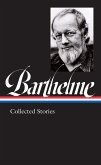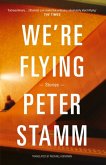Brilliant, prolific, uniquely American, Pulitzer prizewinning playwright Sam Separd is a major voice in contemporary theatre. And here are seven of his very best.
"One of the most original, prolific and gifted dramatists at work today." The New Yorker
"The greatest American playwright of his generation...the most inventive in language and revolutionary in craft, [he] is the writer whose work most accurately maps the interior and exterior landscapes of his society." New York Magazine
"If plays were put in time capsules, future generations would get a sharp-toothed profile of life in the U.S. in the past decade and a half from the works of Sam Shepard." Time
"Sam Shepard is the most exciting presence in the movie world and one of the most gifted writers ever to work on the American stage." Marsha Norman, Pulitzer prizewinning author of Night, Mother.
"One of our best and most challenging playwrights...his plays are a form of exorcism: magical, sometimes surreal rituals that grapple with the demonic forces in the American landscape." Newsweek
"His plays are stunning in thier originality, defiant and inscrutable." Esquire
"Sam Shepard is phenomenal..the best practicing American playwright." The New Republic
Hinweis: Dieser Artikel kann nur an eine deutsche Lieferadresse ausgeliefert werden.
"One of the most original, prolific and gifted dramatists at work today." The New Yorker
"The greatest American playwright of his generation...the most inventive in language and revolutionary in craft, [he] is the writer whose work most accurately maps the interior and exterior landscapes of his society." New York Magazine
"If plays were put in time capsules, future generations would get a sharp-toothed profile of life in the U.S. in the past decade and a half from the works of Sam Shepard." Time
"Sam Shepard is the most exciting presence in the movie world and one of the most gifted writers ever to work on the American stage." Marsha Norman, Pulitzer prizewinning author of Night, Mother.
"One of our best and most challenging playwrights...his plays are a form of exorcism: magical, sometimes surreal rituals that grapple with the demonic forces in the American landscape." Newsweek
"His plays are stunning in thier originality, defiant and inscrutable." Esquire
"Sam Shepard is phenomenal..the best practicing American playwright." The New Republic
Hinweis: Dieser Artikel kann nur an eine deutsche Lieferadresse ausgeliefert werden.








